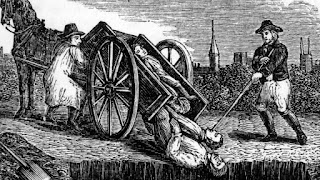Maggie and I went for our new TIE cards, Tarjeta de Identidad de Extranjero, Foreigner's Identity Card, today. The idea of this entry is to explain the bare bones of the process for someone who has to do it and who already has one of the green residence forms or cards.
Now that we are no longer European Union Citizens we Britons can get this ID card, we have been able to since Monday. We don't have to, at least for a while, but we can. The advantage is, in a country that uses and demands ID all the time, we will have a credit sized card that will save us the bother of carrying around our passport and other floppy bits of paper. I think, though I'm not sure, that it also allows us to sign in for certain online transactions.
The process was pretty straightforward. I saw, online, that there were some appointments available and didn't hesitate to book them up straight away. Getting appointments for lots of the official procedures has been difficult for months, no doubt partly due to we Britons finally sorting out our missing paperwork as the getting Brexit done dates came and went and came and went. I was happy to get an appointment at all and amazed when I managed to get appointments for both Maggie and me within half an hour of each other on the same day. If you have a go and you find there are no appointments available try again later. They seem to come and go quite often.
The paperwork we needed was pretty simple. There's a form for the process available online, we also had to pay the 12€ fee beforehand, which we did at a local bank. As well as the two forms the Foreigner's Office wanted a copy of the form that shows your official address, the padrón, a copy of the green document that all we British immigrants call the residencia (mine was one of the A4 sized sheets), a photo and, of course, sight of the British passport. Hardly anything. There was a trick to come though but I was ready for it.
We found the Foreigner's Office in Alicante easily, parking was easy too and it was on "our" side of town. A bit before the appointed time I queued up outside. It was a short queue of maybe seven or eight people, I showed my appointment card to the security guard and he let me in. It was amazing the number of people he turned away because they didn't have appointments. Once inside I went through the security scanner and then tapped my appointment code into a machine. The machine spat out a sort of delicatessen counter ticket and the number on that ticket flashed up on a TV screen in the waiting area telling me where to go. I went to my appointed desk in the appointed room and handed over my paperwork. In the official list of required paperwork there was mention of passport and residencia - there was no mention of copies but I've been to a lot of government offices in my 15 years here and I've learned to carry more paper than they ask for. So, when they wanted a copy of the passport and a copy of the residencia I pulled them out of my bag, rabbit like. The biggest problem was my fingerprints. I had to give my fingerprints for the biometric data chip and it appears I don't have one or any. As I said to the bloke I must remember to use that finger on the trigger if the time ever comes. I tried lots of time, maybe forty times before they got the prints they needed. That done, paperwork stapled together, the man gave me a paper slip which told me where to collect my new card in "about" three weeks. I was out within about 20 minutes.
Maggie had a similar experience though the security guard wasn't around for twenty minutes or so, probably breakfast time, I kid you not, so she was a bit late getting in. And Maggie's top hat didn't work so well - she pulled out the residencia but not a copy of her passport so she had to go to the nearby bar to get a copy. Even then she only took about 40 minutes to complete the process.
Now, if the document turns up, as promised in three weeks, just one more trip to Alicante and we're in business.
This part was written on 30 July. I rang, yesterday, to see if the card was ready and they said it was. I was told there was no appointment system and just to turn up at Calle Campo de Mirra, 6 between 9am and 2pm. That's what I did. There was a bit of queuing but basically it was hand over the bit of paper I'd been given at the end of the first session, show my passport, hand in the green residence form, give a couple of fingerprints and leave with my new TIE card.






















